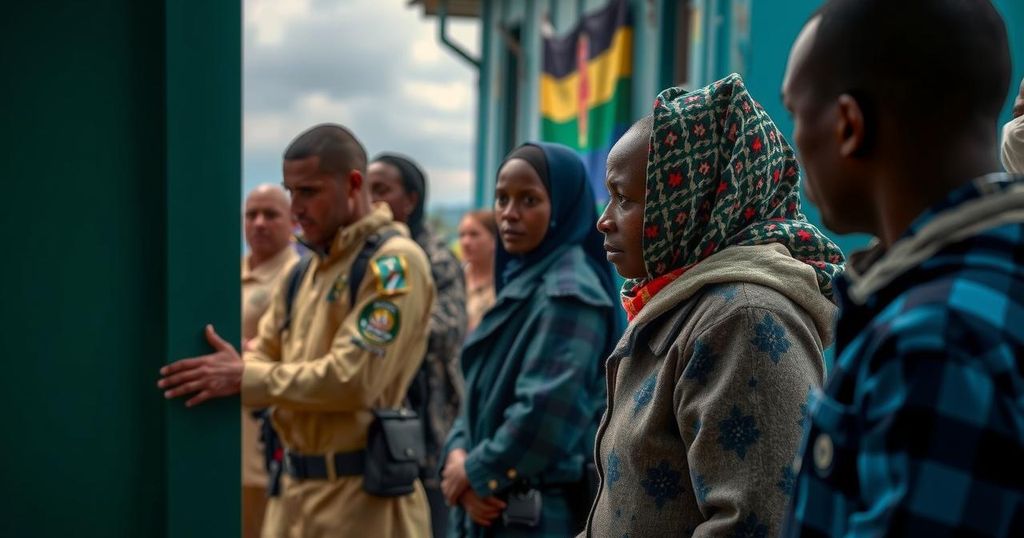Debate Arises Over Kenya’s Deportation of UN-Protected Turkish Refugees

Kenya’s recent deportation of four Turkish nationals under UN protection has sparked debate on its commitment to international refugee obligations. The Kenyan government cited treason charges, although previous extradition requests by Turkey had been denied by other nations. Human rights groups condemned the act, arguing that it undermines refugee protections, amid concerns about growing security ties between Kenya and Turkey.
The recent deportation of four Turkish nationals from Kenya, who were under United Nations protection, has ignited a significant debate regarding Kenya’s adherence to international refugee law. The Kenyan government justified the action by citing treason charges faced by the individuals in Turkey. However, the extradition case is complicated, as multiple countries had previously refused Turkey’s requests to extradite these individuals. Notably, human rights organizations have condemned the deportations, asserting that the men were legally recognized refugees. This incident also raises concerns about the growing security collaboration between Kenya and Turkey, which has been marked by various military training programs and equipment transfers for Kenyan security forces. Furthermore, the detainees were connected to a controversial Islamic figure, Fethullah Gulen, who has been targeted by the Turkish government since a failed coup in 2016. Similar instances of forced deportations have occurred in Kenya’s past, highlighting ongoing challenges in the nation’s treatment of asylum seekers.
Kenya has historically been a refuge for those seeking asylum, but its commitment to international obligations, particularly regarding the treatment of refugees, is now being questioned. The deportation of Turkish nationals who had been granted UN protection has raised significant legal and ethical concerns. Under international law, refugees should not be forced to return to their countries if they face persecution. The case is further complicated by the Turkish government’s ongoing efforts to suppress dissent and eliminate perceived threats following the 2016 coup attempt, in which Gulen, a prominent antagonist of the Turkish regime, has been implicated. The historical context of Kenya’s involvement in forced deportations adds to the urgency of addressing these concerns.
The deportation of four Turkish refugees by the Kenyan government has brought to the forefront the critical issue of adherence to international law concerning refugee protection. This incident has elicited condemnation from human rights advocates and underscores the precarious position of asylum seekers in Kenya. As the country navigates its diplomatic relations with Turkey, it must also reconsider its commitments to safeguarding human rights, particularly in terms of protecting those who seek refuge from persecution.
Original Source: www.mwakilishi.com








